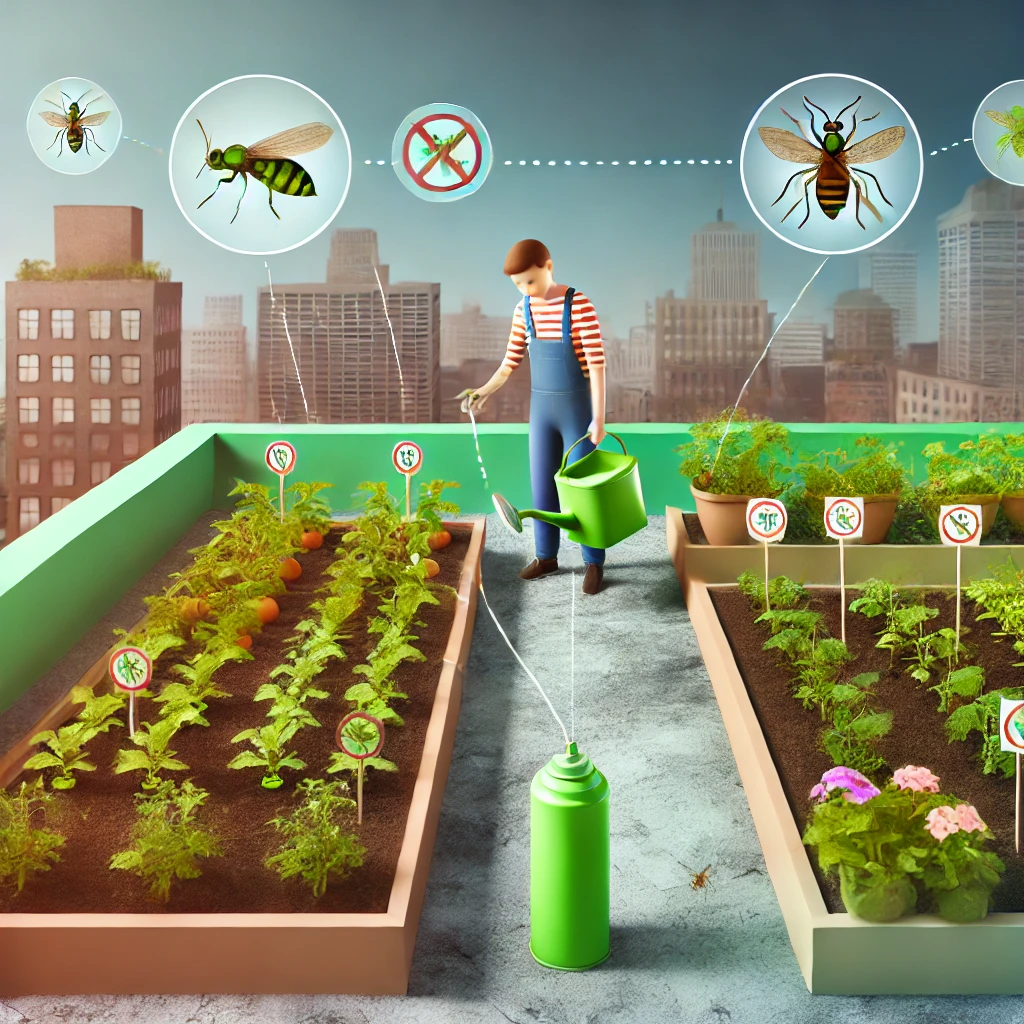
Introduction
Urban farming and rooftop gardens are increasingly popular for their environmental and aesthetic benefits. However, managing pests in these settings poses unique challenges. This essay explores effective pest control strategies tailored for rooftop gardens and urban farming initiatives, focusing on practical and sustainable solutions.
Challenges in Urban Farming
Rooftop gardens face specific pest control challenges due to their elevated and confined spaces. Limited access and proximity to surrounding structures can make pest management difficult. Common issues include limited space for applying treatments and rapid pest proliferation. Addressing these challenges involves adopting targeted and efficient pest control methods that minimize disruption to the garden ecosystem.
Integrated Pest Management (IPM)
Integrated Pest Management (IPM) is a comprehensive approach to pest control that combines multiple strategies. In rooftop gardens, IPM can include regular monitoring to identify pest populations early, using biological controls such as beneficial insects, and implementing cultural practices like crop rotation. By integrating these methods, gardeners can manage pests effectively while minimizing the use of chemical pesticides and promoting a balanced ecosystem.
Physical Barriers and Traps
Physical barriers and traps are practical tools for managing pests in rooftop gardens. Barriers such as netting and row covers can prevent pests from accessing plants, while traps help capture and monitor pest populations. These tools are especially useful in urban settings where space is limited. Regular maintenance of barriers and traps is essential to ensure their effectiveness in controlling pest issues and protecting plant health.
Organic and Sustainable Solutions
Organic pest control methods are well-suited for urban farming and rooftop gardens. Natural repellents like neem oil and insecticidal soap offer environmentally friendly alternatives to chemical pesticides. Additionally, practices such as companion planting and using organic mulch can enhance pest control by disrupting pest life cycles and improving plant resilience. These methods support sustainable gardening practices and contribute to the overall health of the garden ecosystem.
Community Education and Engagement
Educating the community about pest control is crucial for the success of urban farming initiatives. Workshops and educational programs can teach urban gardeners about pest identification, management techniques, and preventive measures. Engaging the community fosters collaboration and encourages the sharing of best practices. By building a knowledgeable community, individuals are better equipped to address pest issues and maintain healthy urban gardens.
Conclusion
Effective pest control in rooftop gardens and urban farming initiatives requires addressing unique challenges with integrated and sustainable strategies. By implementing IPM, utilizing physical barriers and traps, adopting organic solutions, and engaging the community, urban gardeners can manage pests effectively and ensure the health and productivity of their green spaces. These strategies support the continued success and sustainability of urban farming efforts.

